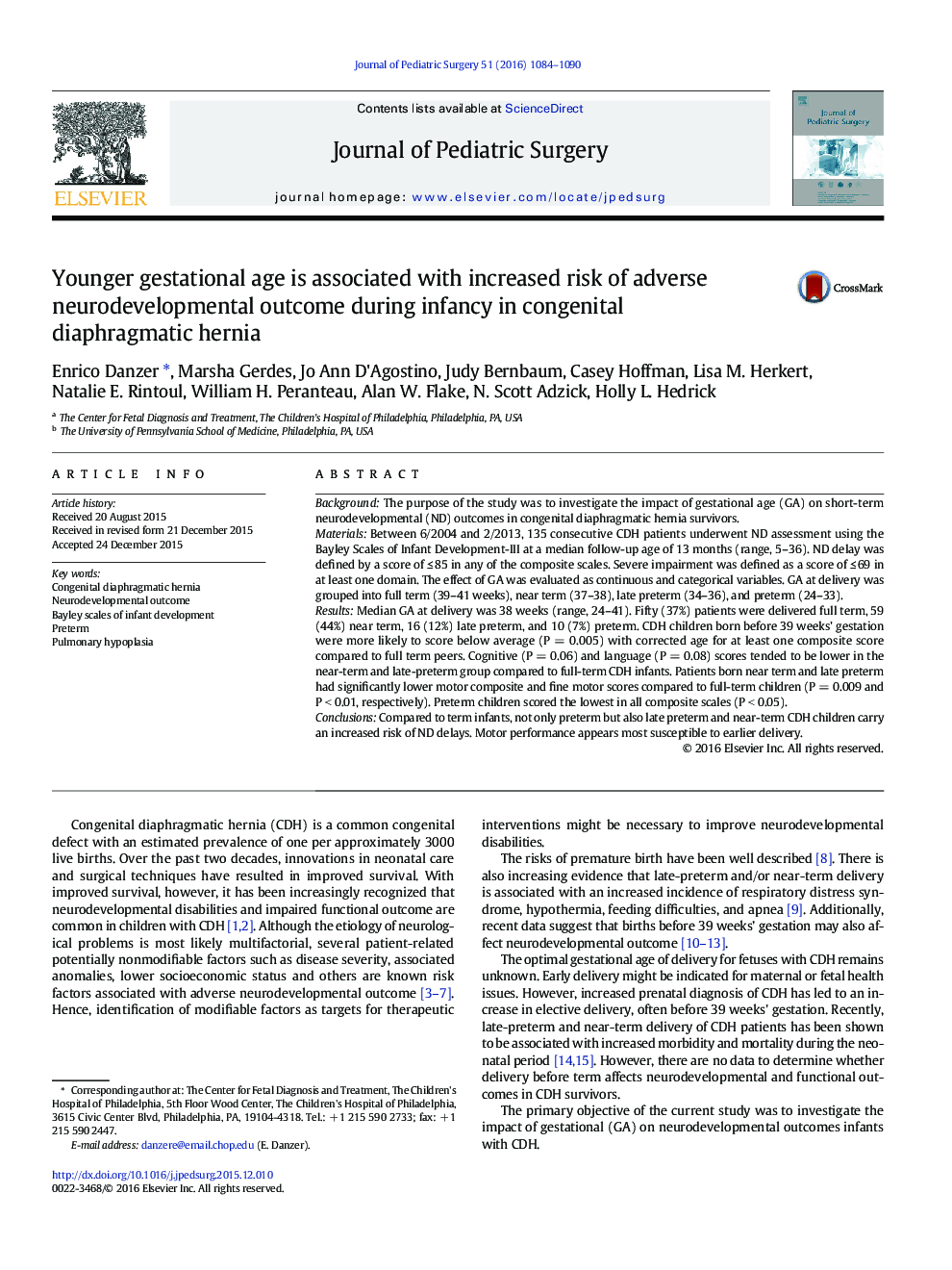| Article ID | Journal | Published Year | Pages | File Type |
|---|---|---|---|---|
| 4154781 | Journal of Pediatric Surgery | 2016 | 7 Pages |
BackgroundThe purpose of the study was to investigate the impact of gestational age (GA) on short-term neurodevelopmental (ND) outcomes in congenital diaphragmatic hernia survivors.MaterialsBetween 6/2004 and 2/2013, 135 consecutive CDH patients underwent ND assessment using the Bayley Scales of Infant Development-III at a median follow-up age of 13 months (range, 5–36). ND delay was defined by a score of ≤ 85 in any of the composite scales. Severe impairment was defined as a score of ≤ 69 in at least one domain. The effect of GA was evaluated as continuous and categorical variables. GA at delivery was grouped into full term (39–41 weeks), near term (37–38), late preterm (34–36), and preterm (24–33).ResultsMedian GA at delivery was 38 weeks (range, 24–41). Fifty (37%) patients were delivered full term, 59 (44%) near term, 16 (12%) late preterm, and 10 (7%) preterm. CDH children born before 39 weeks’ gestation were more likely to score below average (P = 0.005) with corrected age for at least one composite score compared to full term peers. Cognitive (P = 0.06) and language (P = 0.08) scores tended to be lower in the near-term and late-preterm group compared to full-term CDH infants. Patients born near term and late preterm had significantly lower motor composite and fine motor scores compared to full-term children (P = 0.009 and P < 0.01, respectively). Preterm children scored the lowest in all composite scales (P < 0.05).ConclusionsCompared to term infants, not only preterm but also late preterm and near-term CDH children carry an increased risk of ND delays. Motor performance appears most susceptible to earlier delivery.
